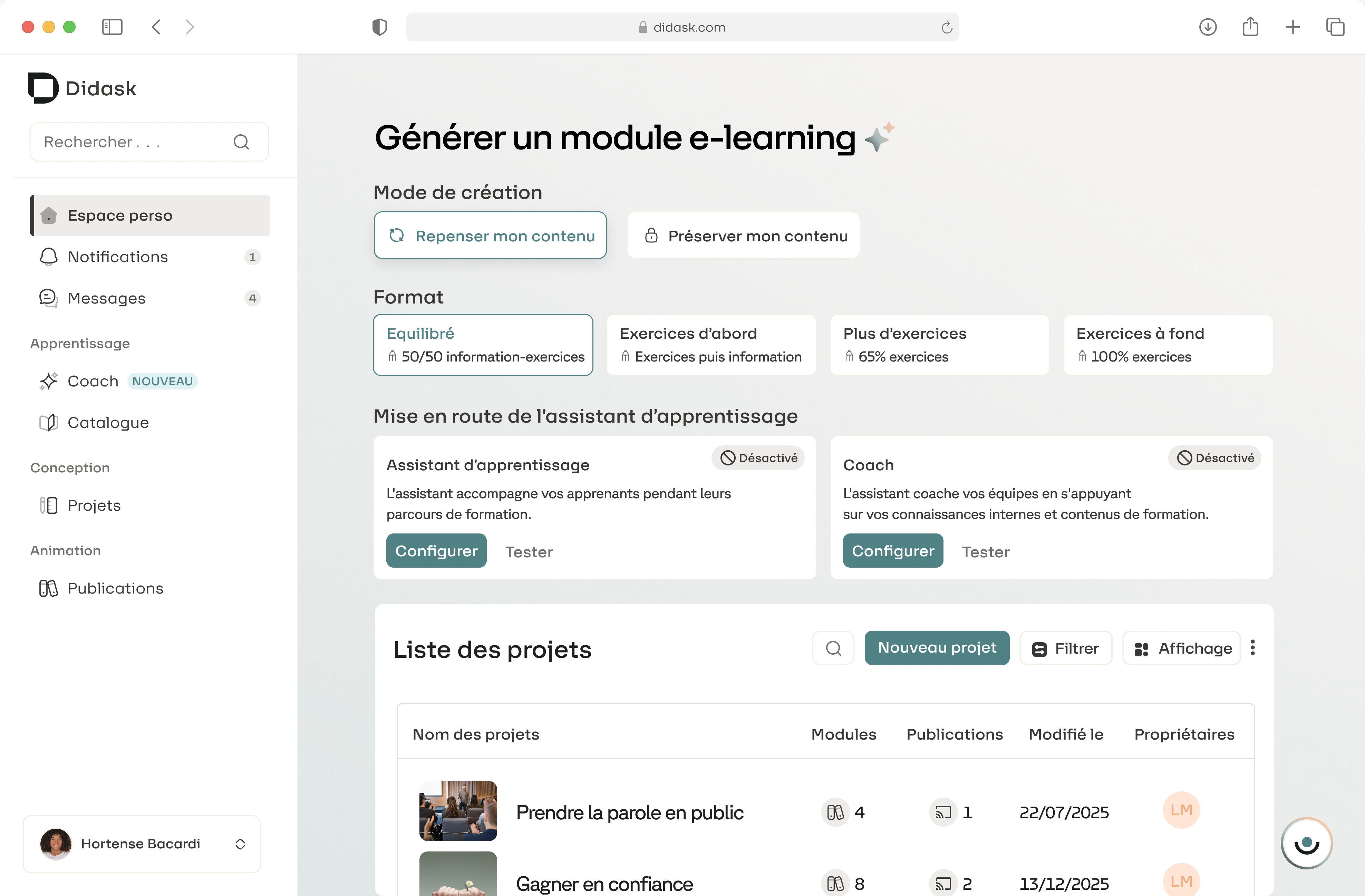In an ultra-competitive business environment, mastering sales skills makes all the difference between failure and commercial success. However, 87% of sales training courses fail to produce sustainable results in the field. Cognitive sciences are now revolutionizing the acquisition of these key commercial skills by relying on the understanding of brain functioning for skills learning that is rooted and operational in the daily life of salespeople.
What really makes a successful salesperson today?
The myth of the salesperson “born with the sales gene” or naturally endowed with required qualities such as a sense of relationships is no longer there. Research shows that the skills needed to sell are acquired and developed through appropriate learning methods.
Businesses are now looking for salespeople who can analyze customer needs, build a lasting relationship of trust and adapt quickly to market changes. Sales performance is now based on adaptive intelligence rather than traditional persuasion techniques to convince in the sales field.
The 3 fundamental pillars of sales skills
Professional learning research suggests that business performance is based on three complementary skill areas. This categorization provides a structured framework for methodically developing sales expertise.
The first pillar concerns relational skills that make it possible to create the essential human connection with each customer or prospect.
The second includes technical skills that ensure mastery of the product or service and the retail or B2B environment.
The third combines strategic skills that optimize the commercial approach and the sales process over the long term.
This integrated approach recognizes that the human brain processes these different types of information in a complementary manner, simultaneously engaging emotional, analytical, and strategic functions. Relational skills make greater use of our empathy and communication skills, technical skills call on our analytical and memory functions, while strategic skills integrate these different capacities into a coherent vision of the business relationship.
The 12 essential skills to excel in sales
What are these critical sales skills that set elite salespeople apart?
Relationship skills: the basis for any successful sale
Relationship skills are based on the ability to create authentic and productive connections with customers. They are the foundation of any effective commercial approach and customer satisfaction, especially in the context of a professional relationship.
- Commercial empathy : Ability to project oneself into the client's professional reality and to understand his real challenges in order to better meet his expectations with patience.
Concrete example : An IT solutions sales consultant who spends a day observing the workflow of his interlocutor before offering a suitable product or service. - Structured active listening : The art of collecting relevant information by guiding the conversation towards the real needs of the client, one of the main qualities required.
Concrete example : Use the funnel technique, starting with open questions to gradually refine to specific points during customer contact, to better understand their needs before selling. - Persuasive communication : Ability to articulate a sales pitch and an added value proposition adapted to the needs identified in order to communicate effectively.
Concrete example : Transform “Our software offers 15 features” into “These 3 features will allow you to save 5 hours per week in managing your time.” - Handling objections : Art of transforming resistance into an opportunity to deepen customer relationships.
Concrete example : Faced with an objection to the price, explore the concept of perceived value rather than defend the cost, to facilitate the conclusion of the sale more effectively.
Technical skills: master your product and its environment
Technical skills are the foundation of credibility that is essential to establish trust with the customer. They demonstrate the expertise and professional mastery of the seller in his field and his knowledge of the product.
- Applied product expertise : Ability to link technical characteristics to concrete benefits for the customer, demonstrating a thorough knowledge of the offer, whether it is a product or service.
Concrete example : Don't just describe a feature, but explain how it solves a specific customer problem while taking into account their particular needs. - Mastery of technological tools : Fluid use of CRMs, sales support tools and digital platforms, including social networks for social selling, which are among the new essential skills.
Concrete example : Use a configurator in real time to visualize a personalized solution during the customer interview at the point of sale or in store. - Sector intelligence : In-depth understanding of the issues, trends and challenges of the client's business sector or target market, to establish solid credibility.
Concrete example : Mention a new regulation affecting the customer's sector and explain how your product or service helps to comply with it. - Impactful presentation : Ability to structure and deliver a memorable commercial message when presenting products, taking into account the specificities of each person.
Concrete example : Use the 3C method (Challenge, Context, Conclusion) to structure each customer presentation and improve the perceived image of your offer.
Strategic skills: planning and orchestrating commercial success
Strategic skills make it possible to optimize the entire sales process. They transform sales techniques into measurable and sustainable results to rigorously achieve business goals.
- Methodical qualification : Ability to quickly identify the potential of a commercial opportunity during prospecting, essential for any home or store salesperson.
Concrete example : Systematically apply a BANT evaluation grid (Budget, Authority, Authority, Need, Timing) to each prospect to effectively manage their time and prioritize their tasks. - Strategic planning : Methodical organization of commercial actions to maximize impact and commercial activity as part of a coherent marketing strategy.
Concrete example : Establish an account plan for each strategic customer with specific sales milestones and goals. - Value-based negotiation : Art of orienting the discussion towards the value created rather than the price, essential in the sales process and to conclude successfully.
Concrete example : Calculate and present the specific ROI of your solution for the customer before addressing the pricing issue to convince the customer of its relevance. - Sales cycle management : Ability to actively manage each stage of the commercial process to improve performance indicators and adapt to each level of customer decision.
Concrete example : Define clear “progress signals” at each stage and corrective actions in case of stagnation in the customer or buyer's decision-making process.
Why do so many business courses fail to develop these skills?
Despite considerable investments in sales training, most commercial training traditional ones produce disappointing results. Cognitive science explains why and how to address this systemic problem in developing sales skills.
Traditional continuing education approaches often ignore the brain mechanisms for learning skills. Long theoretical presentations overload working memory, while the lack of immediate application prevents sales knowledge from being anchored. In addition, the lack of personalization does not meet the specific needs of each salesperson in store or remotely.
Case study: Canal+ is transforming the training of its salespeople thanks to the cognitive approach
Canal+ International has transformed the training of its salespeople in Africa with Didask's cognitive approach. Faced with the challenge of training salespeople scattered in nearly 40 countries, the company abandoned traditional top-down training in favor of a path based on learning by error and practice, with concrete scenarios perfectly adapted to daily sales in the field.
The results were remarkable, with extremely positive feedback from salespeople who appreciated the relevance of the situations presented: “I was very satisfied because it relates what we experience daily in the field”. The training manager also valued the autonomy acquired in terms of instructional design thanks to this approach.
Are you a company or a training organization?
How to set up an effective business skills development plan
To transform the sales performance of your sales team, follow these key steps based on cognitive science:
- Make an accurate diagnosis current skills by combining performance data (conversion rate, average ticket) and seller self-assessment.
- Create a personalized development journey by prioritizing the skills with the greatest impact according to your business goals. La training platform like Didask will help you create fast and effective training courses.
- Structure learning according to the cognitive path in five steps: motivate, deconstruct, memorize, apply cold and then hot.
- Give priority to micro-learning with modules of 5-15 minutes adapted to the optimal brain learning pace and the busy schedule of salespeople.
- Evaluate continuously the progress made and adjust the journey according to the results obtained and customer feedback.
Educational AI by Didask optimizes this process by automatically customizing the learning path according to the performance and preferences of each salesperson, whether in stores, in the specialized department or in distance selling.
Businesses that adopt this science-based approach to developing business skills achieve concrete results: shortened sales cycles, improved conversion rates, and building a culture of sustainable business excellence.











.png)